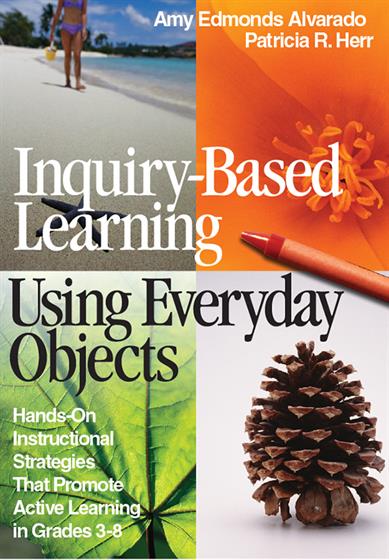Hands-on, Practical Guidance for Educators
From math,
literacy, equity, multilingual learners, and SEL, to assessment, school counseling,
and education leadership, our books are research-based and authored by experts
on topics most relevant to what educators are facing today.
Inquiry-Based Learning Using Everyday Objects
Engage students in object-based inquiry to encourage them to become more observant, inquisitive, and reflective!
Object-based inquiry is a tested method that enhances the skills of the student as well as the instructor by engaging students in hands-on studies of everyday objects, raising their curiosity and enthusiasm for the learning process. Hands-on instructional strategies foster active learning and allow students to investigate essential questions while meeting curriculum standards and experience new learning. Essential focal points of this teaching resource include:
- Getting started and gathering collections of different objects
- Lesson planning and student grouping
- Formative and summative assessments
- Sample lesson plans for language arts, science, social studies, and math
- Grade Level: 3-8
- ISBN: 9780761946809
- Published By: Corwin
- Year: 2003
- Page Count: 216
- Publication date: April 17, 2003



